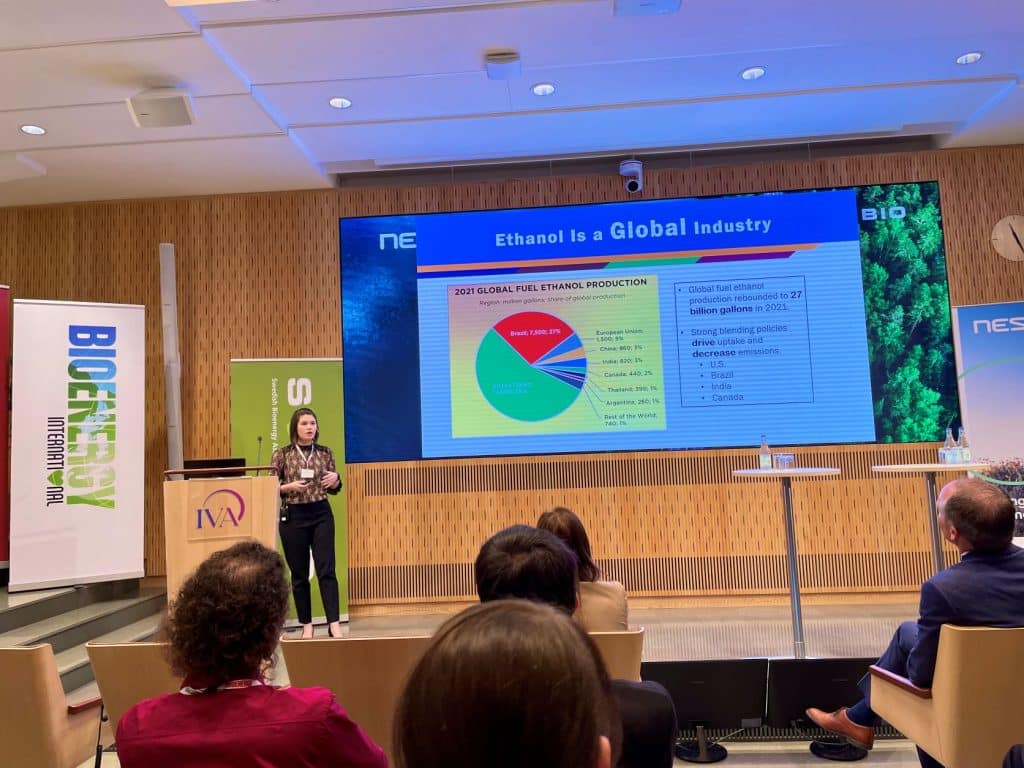Last week, Isabelle Ausdal, U.S. Grains Council (USGC) manager of global ethanol policy and economics, traveled to Sweden to attend the International Energy Agency (IEA) Bioenergy Task 39 “Biofuels to Decarbonize Transport” fourth business meeting and Advanced Biofuels Conference hosted by the Swedish Bioenergy Association (SveBio).
IEA’s Task 39 is a group of international experts representing 15 countries dedicated to scaling up and increasing the use of low carbon biofuels for transportation as part of the IEA Bioenergy organization. This meeting was organized to review and determine participation in upcoming projects for the next three years. The Council has been working with multilaterals over the past two years to raise awareness of the role of ethanol in the energy transition and help position the industry as a partnership working toward shared goals in long term decarbonization.
“The Council is looking forward to working with other country representatives in Task 39 to scale up the use of biofuels across the globe. Working in tandem with well-regarded non-governmental organizations (NGOs) such as IEA, is critical to help countries increase their carbon reduction efforts using sustainably produced, low cost solutions with the best available technology,” Ausdal said.
While at the 2022 Advanced Biofuels Conference, Ausdal offered industry perspectives including the continued reduction in U.S. ethanol’s carbon intensity and ways the U.S. is advancing the use of ethanol including using higher on-road blends including E15 and E85 and the production of sustainable aviation fuel (SAF).
The conference brought together leading actors and stakeholders in the global biofuels industry to share insights and showcase the latest developments in European Union (EU) and international policy.
While in Sweden, members of Task 39 were given a pre-conference tour of a novel PyroCell plant that converts sawdust from a timber mill into a biocrude used by a local refinery.
“It is amazing what advancements the biofuels industry can make so quickly. While there are many technologies available and upcoming that provide opportunities for further decarbonization, biofuels are a significant and immediate solution to meet the decarbonization needs of light duty, heavy duty, marine and aviation fleets. The potential for ethanol in SAF is especially appealing, as corn ethanol is approved and is currently used as a feedstock for SAF production,” Ausdal said.
About The U.S. Grains Council
The U.S. Grains Council develops export markets for U.S. barley, corn, sorghum and related products including distiller’s dried grains with solubles (DDGS) and ethanol. With full-time presence in 28 locations, the Council operates programs in more than 50 countries and the European Union. The Council believes exports are vital to global economic development and to U.S. agriculture’s profitability. Detailed information about the Council and its programs is online at www.grains.org.

